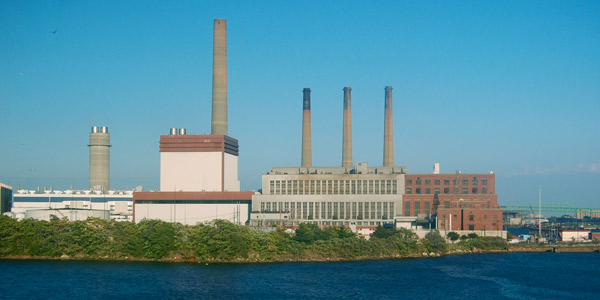By Peter Key
Exelon’s plans for its generation subsidiary rely heavily on a push for new legislation and market rule changes that ensure profitability for plants the company is threatening to close, officials said last week.
During a first-quarter earnings call last week, CEO Chris Crane said Exelon plans to push for subsidies for its nuclear plants in Pennsylvania similar to the zero-emission credit (ZEC) programs in Illinois and New York, and the one recently passed by the New Jersey Legislature but not yet signed by Gov. Phil Murphy.
Crane also said he expects Exelon’s generation business to benefit from PJM’s adoption of new price formation rules and FERC’s resilience initiatives.
Although Crane didn’t mention it, Exelon’s Pennsylvania nuclear plants could also earn subsidies from a New Jersey plan that takes into account how plants affect the state’s air quality, regardless of where they’re based. (See Izzo: Nukes Outside NJ Likely Eligible for State ZECs.) Efforts to enact nuclear subsidy programs in Pennsylvania have so far failed to gain much traction.
Crane also said Exelon will work with ISO-NE to develop market reforms allowing it to keep open the four units of its Mystic Generating Station in Charlestown, Mass., that it said it would close in June 2022.
The company is “going to look to get to the right reforms to make these assets more economic in the future,” Crane said. He noted that ISO-NE “put out a study recently saying that there were five assets in New England needed to ensure reliability into the future, one being the Everett Marine Terminal and the others being the Mystic [units].”
On the same day it said would close Mystic, Exelon announced it was buying the Everett Marine Terminal, an LNG import facility in Everett, Mass., which provides Mystic and other power plants in the area with fuel.
ISO-NE last week asked FERC for permission to waive certain Tariff requirements to allow the RTO to retain Mystic Units 8 and 9 to maintain fuel security, following up on a plan the RTO outlined in an April memo. (See ISO-NE Moves to Keep Exelon’s Mystic Running.)
Crane, along with Joe Dominguez, the company’s vice president of governmental and regulatory affairs and public policy, also addressed a PJM plan announced April 30 to help ensure fuel security. (See PJM Seeks to Have Market Value Fuel Security.)
Dominguez said Exelon would like to see PJM incorporate environmental impacts associated with different fuel mixes, pointing out that during the cold snap last winter, New England had to rely heavily on oil to produce power.
“In 2018, emissions need to be going down,” he said. “And any resolution of this issue that results in emissions going up is going to continue to create incentives for state actions and, indeed, for other federal actions to correct the flaws in those market.”
Crane said that while consumers have benefited from low-cost gas, the industry needs to either build redundancy into the gas delivery system or limit its dependency on gas to make the power production and delivery system more secure.
Exelon had net income of $585 million ($0.60/share) on revenue of $9.69 billion in the first quarter, down from $990 million ($1.06/share) and $8.75 billion in revenues a year earlier. The company’s operating earnings were 96 cents/share, beating the Zacks consensus estimate of 93 cents.
Crane said the company plans to target a 7.4% rate base growth for its utilities and 6 to 8% earnings per share growth through 2021.
Exelon is still on the prowl for acquisitions, if it can find smart ones, according to CFO Joseph Nigro.
“To the extent we can add something that we think will be accretive to the bottom line and fits with the value proposition that we’re trying to bring both to our shareholders and our customers, we’re going to be aggressive with doing that,” Nigro said.
Quotes courtesy of Seeking Alpha.




